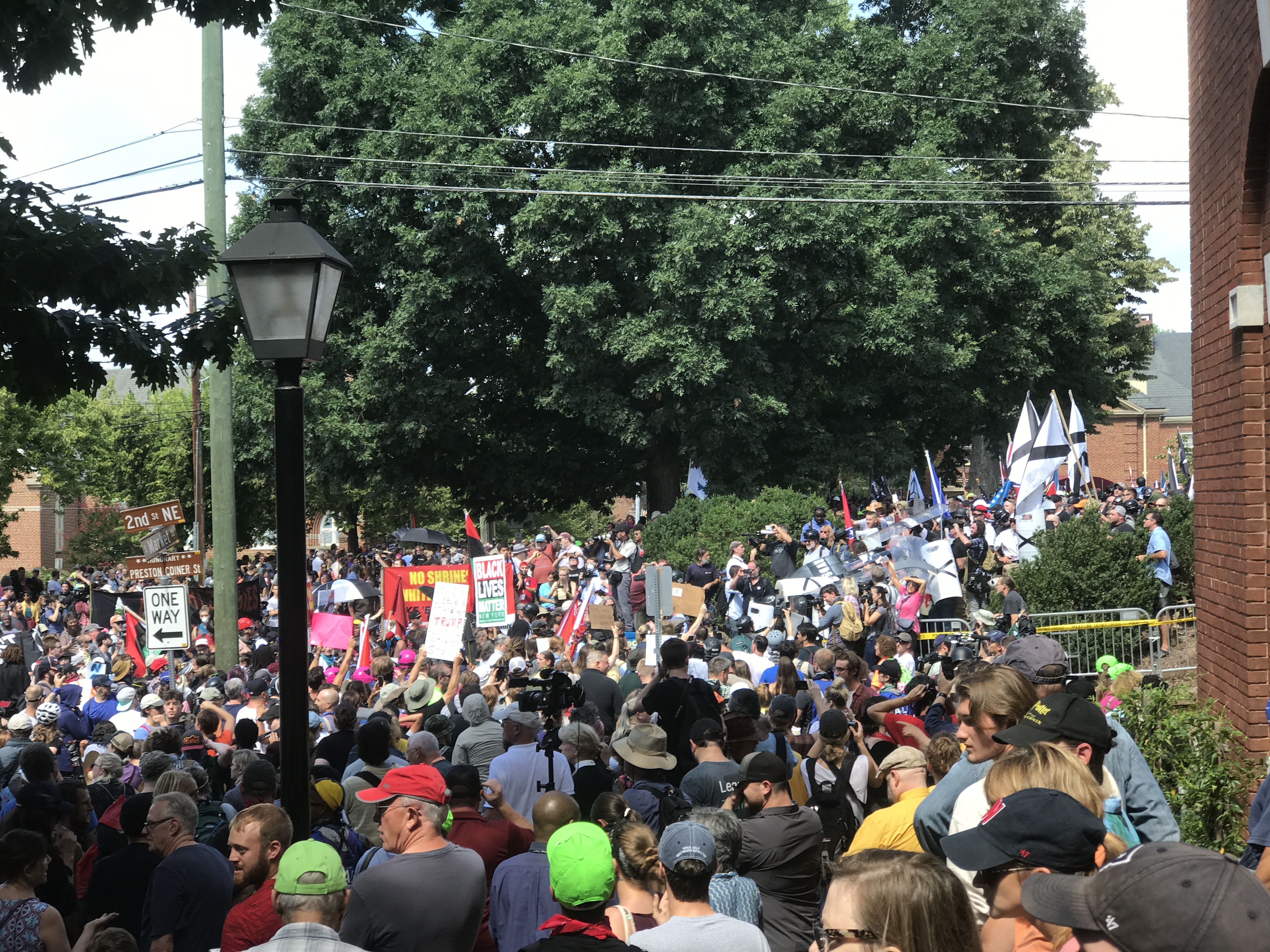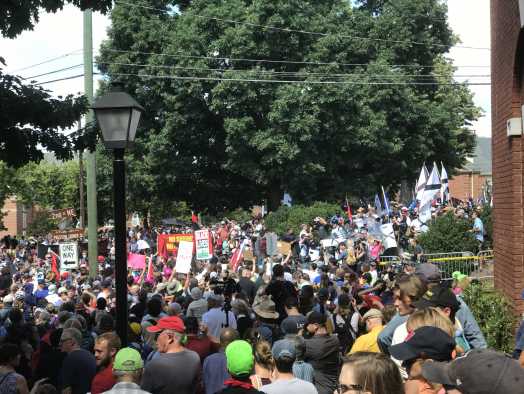Charlottesville: One Year Later

 White nationalists and counterprotesters clash at the rallies in Charlottesville, Virginia, that turned deadly in August of 2017. Photo by Anthony Crider.
White nationalists and counterprotesters clash at the rallies in Charlottesville, Virginia, that turned deadly in August of 2017. Photo by Anthony Crider.The events of Aug. 11 and 12 of 2017 triggered Stronger Than Hate, a USC Shoah Foundation initiative that draws on the power of eyewitness testimony to help students and the general public recognize and counter antisemitism, racism, xenophobia and other forms of hatred.
“I don’t think we’ll ever see the end of this dark side of our humanity,” said Stephen Smith, executive director of USC Shoah Foundation. “However, we can create the kind of community and values that will be stronger than the hatred we know we will face.”
In the year since the Charlottesville tragedy, under the banner of Stronger Than Hate, USC Shoah Foundation has scaled up a host of programs to confront hatred and promote understanding and respect at a time when fear mongering, hate crimes, polarization and authoritarianism are on the rise worldwide.
These include:
- Recording video testimonies of Rohingya refugees who survived genocidal violence at the hands of the Myanmar military, and Yezidi people who survived mass killings by ISIS militants in Iraq.
- Spotlighting the growing scourge of antisemitism by recording testimonies of people whose lives have been upended by a range of offenses against Jews, from vandalism to deadly terrorism. The program has found a partner in UNESCO.
- Spearheading the Intercollegiate Diversity Congress, which recruits university student leaders from around the country to address issues pertaining to race and identity on college campuses.
- Building upon the 200-plus learning activities in IWitness, the Institute’s award-winning online education platform for middle- and high-school as well as university students.
- Installing permanent exhibits at major museums around the world of Dimensions in Testimony, a USC Shoah Foundation innovation that enables people to engage in conversation with a recorded image of a survivor.
Blake Humphrey, immediate past student body president of West Virginia University, said last year’s inaugural Intercollegiate Diversity Congress summit at USC Shoah Foundation for university student leaders has already left a mark on his campus.
Like many other campuses across the country, West Virginia University has grappled with racist activity of late, such as the proliferation of white nationalist posters on the premises.
The summit – which recurs in September – inspired Humphrey to coauthor several IWitness University activities on civility, empathy and intolerance. Beginning this fall, some of that work will be integrated into the programming for students at West Virginia University.
The young registered Republican added that he doesn’t think the world has learned much since the tragedy of Charlottesville.
“I just read the other day that there’s apparently another alt-right rally in Washington D.C. this weekend,” Humphrey said. “And there’s been an increase in the number of hate crimes of different minority populations and individuals. You’re seeing this continued rise in nationalism and anti-immigrant sentiment.”
What’s the solution?
“I think that education viewed as the solution is a great start,” Humphrey said. “And I think that that’s one thing that IDC taught me – that USC Shoah Foundation taught me: that our pasts can be used to inform the present, which can guide the vision and direction that we’re going in in the future. To me that’s the power of survivor testimony.”
Like this article? Get our e-newsletter.
Be the first to learn about new articles and personal stories like the one you've just read.